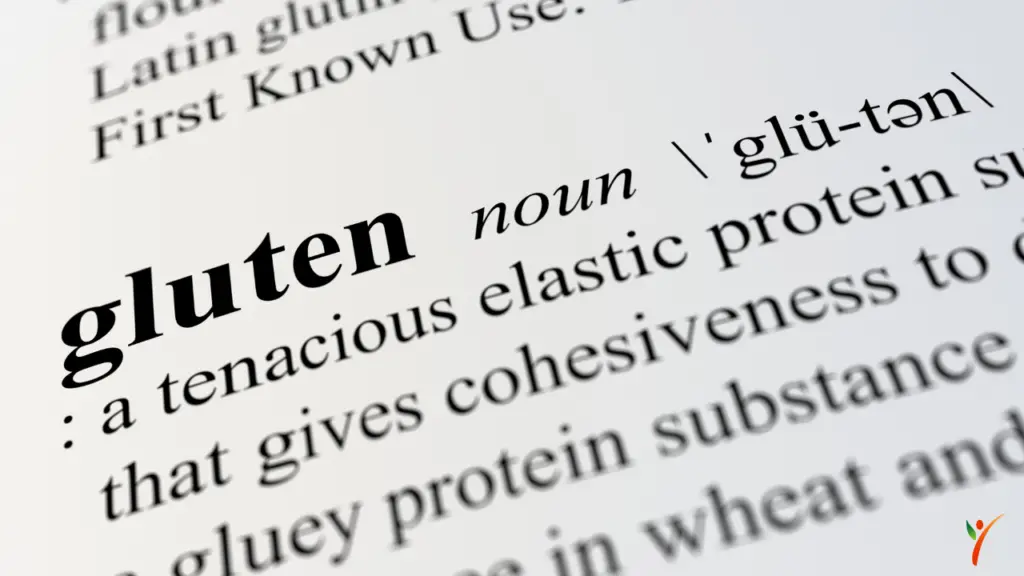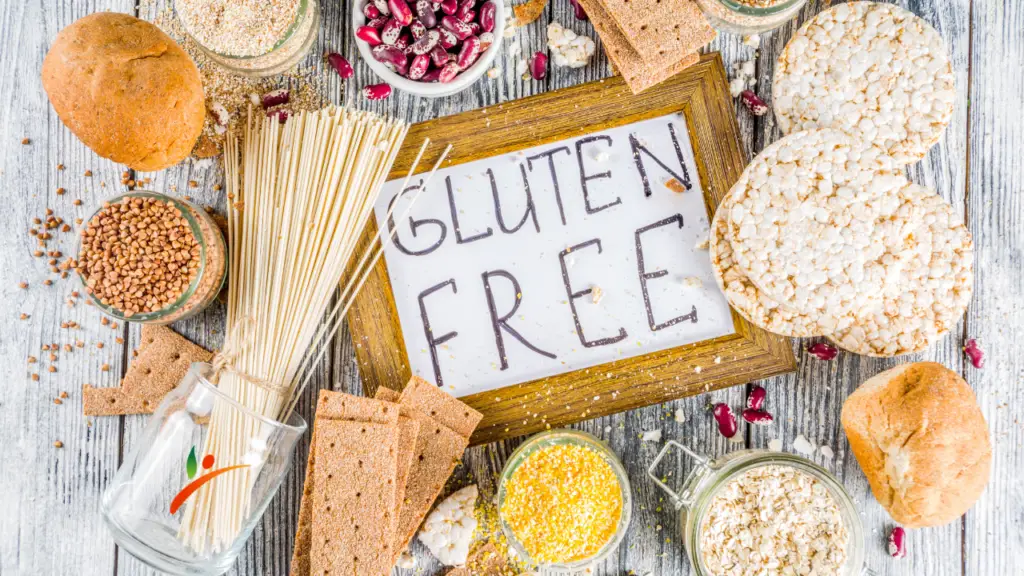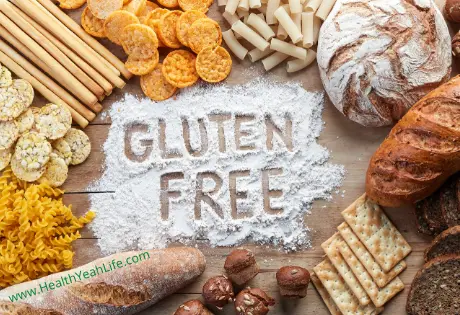Are you someone who often experiences excessive gas or bloating? Living with the fear of excessive gas every time you have bread at breakfast or your favorite pasta is embarrassing, or running to the bathroom every few minutes just because there's too much gas in your stomach.
There is a chance that your food intake is the reason for experiencing digestive symptoms. Gluten is one of the culprits to such symptoms, one of which includes excessive gas and bloating. Here's everything you may need to know on whether gluten is the reason for gas in your stomach.
What is Gluten?

Before we dive into whether gluten causes gas, let's go through a quick recap. Gluten is a protein found in cereal grains. Therefore, wheat, rye, barley, and occasionally even oats are all gluten-containing grains. These grains' most common products include pasta, bread, cereal, baked goods, and more.
Additionally, most processed foods contain gluten in the form of additives or cross-contamination. But that's not all. Gluten is in alcohol, such as beer. Even the medicine you take, and cosmetics might be gluten-contaminated!
Why Avoid Gluten?

There are three reasons you'd want to avoid gluten- gluten sensitivity, celiac disease, or maintaining a healthy lifestyle. The reason for a healthy lifestyle is self-explanatory, no science there.
You'll be avoiding foods that include gluten to restrict or completely cut out gluten from your diet. But what are gluten sensitivity and celiac disease, and why do you need to avoid gluten in those cases?
- Celiac Disease-
Celiac disease is a genetic disorder where an individual's immune system can't digest gluten. Instead of digesting gluten-containing foods, gluten triggers the immune system, which damages the small intestine. Gluten intake for celiac patients can cause long-term health issues, and it is crucial to avoid gluten at all costs.
- Gluten Sensitivity-
Once again, gluten sensitivity is a condition where symptoms are triggered by ingesting gluten-containing foods. However, gluten sensitivity isn't genetic and, in some cases, can be only temporary.
While it isn't as severe as celiac disease, those with gluten intolerance still suffer from symptoms, making life miserable. Ultimately, those with gluten sensitivity will have to avoid gluten for a short phase.
Excessive Gas- A Symptom of Gluten-Related Conditions

Excessive gas in the stomach is a buildup of gases, is a common issue in celiac disease or gluten intolerance. Bloating, where you feel your stomach is too full and gassy, is another common symptom related to gluten-intake. Studies state that around 87% of people with non-celiac gluten sensitivity experience bloating.
The problem is bloating is caused both in celiac and non-celiac sensitivity. If it's only temporary and goes away in a few hours after gluten-containing food intake, it's non-celiac sensitivity. However, if it's often and lasts for days, you might have celiac disease. In both cases, you must get your symptoms checked by a doctor.
Is it Possible to Suddenly Become Gluten-Intolerant?

You might be wondering how it could be gluten sensitivity all of a sudden, especially if you've never had it. The thing is, gluten sensitivity can occur at any time in your life. It can appear whether you're in your 20's or 50's. Even babies can become victims of gluten intolerance! Limiting gluten-containing foods can make the symptoms go.
When Do You Experience Gas After Gluten Intake?

Another common question is, when does the symptom of excessive gas appear after you eat gluten? Answering that question can be complicated since it differs from person to person. Some might experience them within minutes of ingesting gluten food, while others might take a day.
Alongside excessive gas and bloating, early symptoms also include abdominal pain, nausea, constipation, etc. If you think you're experiencing these symptoms after gluten-intake, consult a medical professional.
How Long Does it Take to Recover?

Once you're sure you either have celiac disease or non-celiac sensitivity, you'll be wondering how long will the recovery take. For gluten-sensitive individuals, the road to recovery is relatively short.
All you've to do is limit your gluten intake over a few days or weeks. You'll eventually be feeling better shortly. Alternatively, the damage might be extensive for celiac patients on their intestines with all the gluten-containing foods they've eaten. Once your gluten-free, your intestines will automatically start to heal.
The complete recovery, however, depends on your age as well. For those in their early adulthood, it takes approximately 3-6 months. Meanwhile, for older people, it may take up to 2 years. The key is to maintain a strict diet and let your body do its job of healing itself.
Long-Term Solution

The only simple yet effective solution that doesn't require too much hassle is to avoid any gluten intake. For non-celiac sensitivity, the gluten restriction might only extend to a few weeks per the doctor's advice.
Deducting gluten is the only solution for now on gaining your health back. On the other hand, celiac disease will mean you'll have to cut out gluten entirely. While it might seem challenging to exempt all gluten-containing foods, you can easily switch to their gluten-free alternatives.
But, be cautious of processed or products that contain high amounts of sugar. Anything packaged is not usually the healthiest choice.
Some Immediate Remedies

While your body heals, there are some immediate remedies you can try. After all, no one wants to suffer from excessive gas for too long. Here are a few things to try that might help in getting rid of the symptoms:
Activated Charcoal:
While you might be seeing activated charcoal as a teeth whitener around, it's also used medicinally. Activated charcoal has a natural tendency to absorb toxins from its surroundings. When ingested medically, the activated charcoal can help absorb the gluten particles in your body. Hence, with less gluten in the body, the gas and bloating will ultimately start to reduce.
Lots of Water:
When in trouble, drink lots of water! Your body flushes toxins out when you pass you pass urine. Therefore, the more water you drink, the more toxins become washed out of your body. If you've ingested gluten and are experiencing symptoms, getting rid of the gluten particles is the solution. Hence, drink water to flush those toxins out.
Ginger:
Ginger is one of the most widely used natural products for its anti-inflammatory properties. Not only will ginger help in healing the body, but it will also ease the symptoms. You can take ginger as an herbal tea or as concentrated capsules.
Probiotics:
Celiac disease and gluten sensitivity will result in an imbalance of gut health. Since you're trying to improve your gut health to ease the symptoms, probiotics are another option. Studies suggest probiotics can strengthen the gastrointestinal tract, thereby relieving symptoms of celiac or gluten intolerance.
Therefore, eating foods such as beets, garlic, onion, and asparagus are helpful if you're looking for an easy way out. Probiotic supplements are in pharmacies.
Final Thoughts

Taking care of your health is integral to living a long and stress-free life. If gluten is an element causing digestive symptoms, it's easier to cut it out than to suffer miserably.
Put your health first and switch to a gluten-free lifestyle, whether it's celiac disease or gluten intolerance. Who's to say you might even enjoy it to the point that you won't even miss your old routine. All you've to do is get creative, make meal plans, and switch to gluten-free alternatives.





